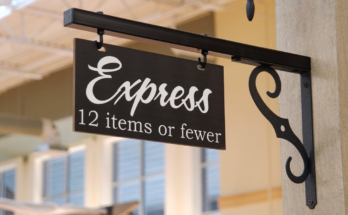
It’s one of those grocery store formalities that many shoppers ignore: When you’re checking out, you’re sometimes asked if you’d like to donate to a charity prior to swiping your card.
It’s not a mysterious proposition at all, but it seems that many people don’t understand how the grocery store checkout counter donation system works. Case in point: A tweet with erroneous information went viral last week, claiming that participating grocery stores have already handed out donations to nonprofit partners for a tax write off, and are merely collecting customer money as a reimbursement. The donation, according to the tweet, is merely a ruse for the sake of profiteering under the guise of charity.
While accusations of corporate malfeasance and general greed will always garner outrage online, this tweet shot through the social media stratosphere, despite its lack of any context or evidence. It’s also just totally wrong. Let’s demystify how these donations really work from a tax perspective.
No, the grocery store isn’t reimbursing itself with your money
There are two kinds of grocery store checkout donations that involve point of sale transactions. The first, which necessitates a co-venture between a grocery store and a nonprofit or charitable organization, occurs when the market donates a percentage of its sales. C0-ventures, generally speaking, are regulated by state governments. As the Council of Nonprofits notes, failure to comply with state regulations regarding co-ventures “can lead to fines and in some states even criminal penalties.”
G/O Media may get a commission
These co-ventures involve a certain percentage of a customer’s sales, and can be arranged in any number of ways. Renu Zaretsky explained for the Tax Policy Center last year how her particular grocery store handles this:
For example, my local grocery chain offers “community rewards” when I scan my shopper’s card at the checkout counter. A small share of its proceeds from my purchases goes to a community organization that I choose (my son’s middle school).
Traditionally speaking, grocery stores—like any corporate entity in America—can deduct up to 10 percent of their taxable income in charitable gifts a year, and this number was increased last year when Congress passed the CARES Act. With the way it works in reality, grocery stores are using a small fraction of their own sales as charitable donations. Contrary to last week’s viral tweet, the donation is made at the point of sale—they aren’t using the system to reimburse themselves for a previous donation.
What happens when you make a donation
Then there’s the other kind of supermarket donation, in which the customer rounds up their purchase by a couple dollars (or more, if they’d like), with the extra cash donated to a charity chosen by the store. But again, there is no devious, unspoken ploy here.
The Tax Policy Center explains how this works:
The store serves only as a collection agent for your gift. Assuming the business is following the law, it will not include your donation as part of its business receipts, or income, nor will it claim the charitable gift as an expense.
In other words, your gift has zero impact on the store’s income taxes. Keep in mind that the store chooses the receiving charity, so make sure it is one you can support. As a customer, the donation will appear on your receipt and you can claim it as a charitable deduction when you file your income tax return. But you probably won’t.
If you get the receipt from the donation (and if the donation goes to a registered 501 (c)(3) non-profit organization), you can deduct it from your personal income on your taxes. For the tax year 2020, you can deduct up to $300 in charitable donations without having to itemize.
Needless to say, there’s a definite PR tactic at play with markets encouraging customers to donate to good causes. But the grocery stores aren’t using a manipulative tactic—and you can stand to benefit from it yourself if you keep a savvy mind when doing your taxes. And as always, don’t get your personal finance advice from social media.



